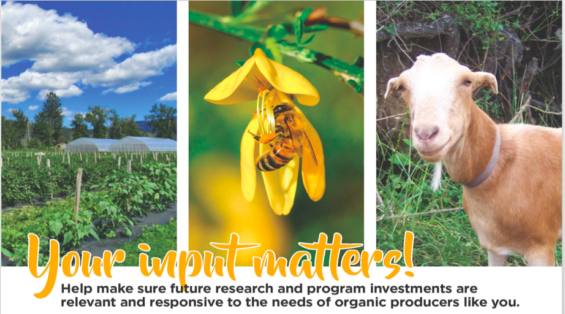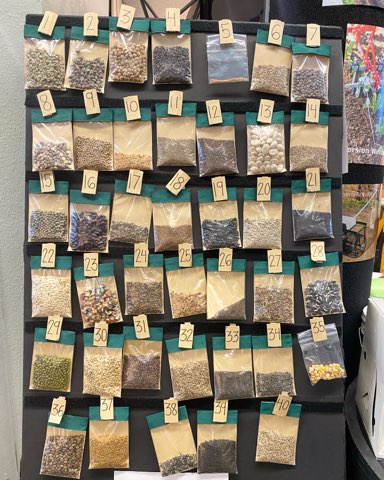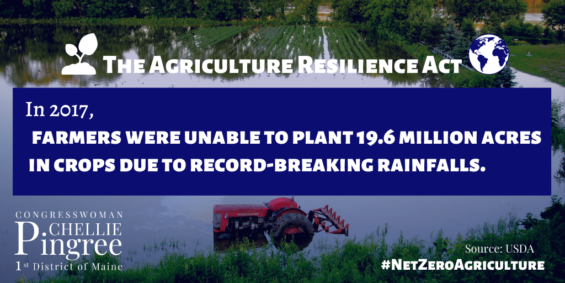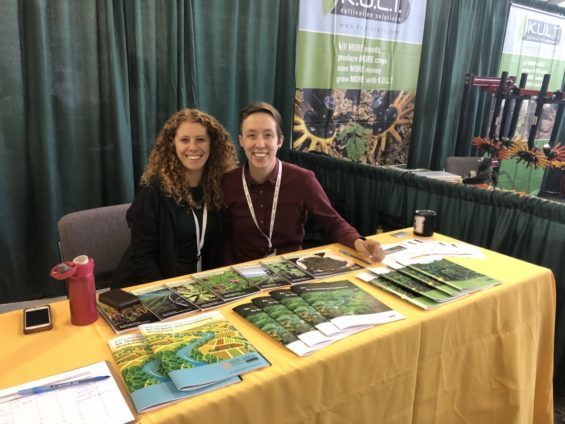 February 18, 2020 – The Organic Farming Research Foundation (OFRF) and Organic Seed Alliance (OSA) have released two national organic surveys—one for certified organic producers and the other for producers transitioning to organic certification. This collaborative effort is part of a USDA-funded project seeking to learn more about the challenges and research priorities of organic farmers and ranchers, and those transitioning land to certified organic production.
February 18, 2020 – The Organic Farming Research Foundation (OFRF) and Organic Seed Alliance (OSA) have released two national organic surveys—one for certified organic producers and the other for producers transitioning to organic certification. This collaborative effort is part of a USDA-funded project seeking to learn more about the challenges and research priorities of organic farmers and ranchers, and those transitioning land to certified organic production.
OFRF, OSA, and a broad coalition of organic champions were instrumental in securing an increase in federal funding for organic research from $20M to $50M in the 2018 Farm Bill. This increase provides an unprecedented opportunity for researchers to tackle the challenges that inhibit the growth of organic production—strong farmer participation in these surveys is critical to informing that investment.
Survey results will be published in updated versions of OFRF’s National Organic Research Agenda (NORA) report and OSA’s State of Organic Seed (SOS) report, both of which have been invaluable resources for ensuring research funding is relevant and responsive to the needs of organic producers, while also identifying gaps where additional investment is necessary. By collaborating on these surveys, OFRF and OSA hope to reduce survey fatigue and increase grower participation.
“OFRF is committed to advancing the research needed to meet the current challenges of organic farming, with the goal of creating a more resilient and ecologically sustainable agricultural system,” said OFRF’s Executive Director, Brise Tencer.
“Understanding the research needs of organic farmers, including in the area of seed and plant breeding, is critical to the ongoing growth and success of organic agriculture,” Hubbard adds.
If you are a certified organic farmer/rancher, please respond to this survey:
www.opinion.wsu.edu/organicproduction
If you are a farmer/rancher transitioning to certified organic production (this means no land currently certified organic), please take this transitioning producer survey:
www.opinion.wsu.edu/transitionproducers
The survey is being administered by Washington State University and all responses will be kept confidential. Questions about the survey may be directed to Lauren Scott at lauren.n.scott@wsu.edu or 1-800-833-0867.
The project is supported by the Organic Agriculture Research and Extension Initiative (OREI) grant no. 2019-51300-30249 from the USDA National Institute of Food and Agriculture.
Organic Farming Research Foundation (OFRF) is a non-profit foundation that works to foster the improvement and widespread adoption of organic farming systems. OFRF cultivates organic research, education, and federal policies that bring more farmers and acreage into organic production.
Organic Seed Alliance (OSA) is a non-profit that works nationally to advance ethical seed solutions to meet food and farming needs in a changing world. Through research, education, and advocacy, OSA fosters organic seed systems that are democratic and just, support human and environmental health, and deliver genetically diverse and regionally adapted seed to farmers everywhere.





 February 18, 2020 – The Organic Farming Research Foundation (OFRF) and Organic Seed Alliance (OSA) have released two national organic surveys—one for certified organic producers and the other for producers transitioning to organic certification. This collaborative effort is part of a USDA-funded project seeking to learn more about the challenges and research priorities of organic farmers and ranchers, and those transitioning land to certified organic production.
February 18, 2020 – The Organic Farming Research Foundation (OFRF) and Organic Seed Alliance (OSA) have released two national organic surveys—one for certified organic producers and the other for producers transitioning to organic certification. This collaborative effort is part of a USDA-funded project seeking to learn more about the challenges and research priorities of organic farmers and ranchers, and those transitioning land to certified organic production.
